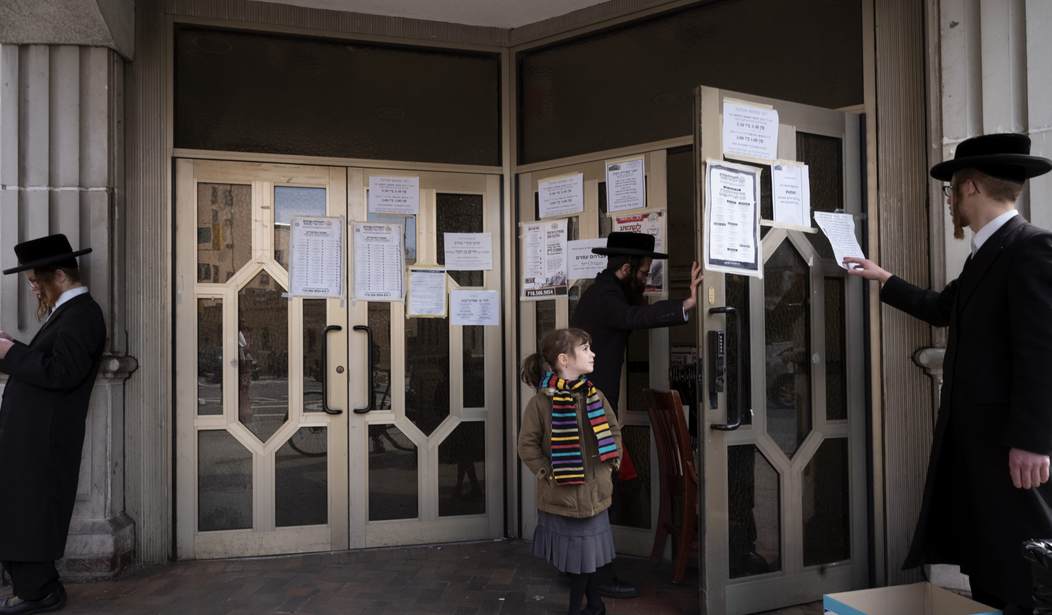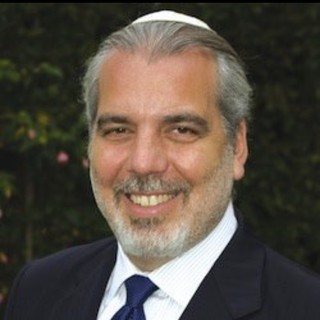There is a tradition within Judaism that all actions in the world can be viewed through the lens of the Torah reading of the week. Based upon that premise, each of these columns are to help us understand the politics of the world through a biblical lens.
There is a lot of dialogue nationally about the importance of the “needs of science” versus religious liberties, and how people of faith should act during these challenging times of the coronavirus pandemic. Should churches and synagogues be allowed to gather together, or should they be prohibited in times of a contagious sickness like COVID-19? Sadly, all too many secular people feel that religious needs are at odds with medicine, and that people of faith are all fanatical and want to break every recommendation of the medical community.
Nothing could be farther from the truth. In this very week’s Torah reading (Leviticus 12:1-15:33), we find specific guidance about self-isolation during the time of a contagious disease.
This Torah portion spends a great deal of time describing what should be done when a person has a highly contagious affliction, in this case a skin disease that is interpreted as a form of leprosy. Upon recognizing even the slightest symptom of the disease, the sick person is to be isolated “outside of the camp” for a varying amount of days, until there are clear signs that the affliction has passed.
Anyone who actually reads the text understands that there are times when self-isolation is a biblical commandment. We are not commanded to gather as a community, even in prayer, if the contagion is identified and present. This is the biblical law, and as such, people of faith have a religious obligation to isolate from this virus. Faith and science go hand in hand to protect the community.
At the same time, we are not obligated to withdraw from worship out of an existential fear, and this is the important issue for many of us. We not only have our religious obligations, but our right to assemble for worship is protected through the First Amendment, as well as the Religious Land Use and Individual Persons Act (RLUIPA), which was unanimously passed by Congress in 2000, which guarantees the “right to assemble together for worship at a physical location to be the very core of the free exercise of religion” (Joint statement of Senators Kennedy and Hatch; 146 Cong Rec 16698), and explicitly requires courts to construe “in favor of a broad protection of religious exercise, to the maximum extent permitted by the Constitution.”
The First Amendment to the Constitution prohibits “government actors from enforcing any “law respecting an establishment of religion or prohibiting the free exercise thereof” (1st Amendment and subsequent amendments and interpretations such as Cantwell v Conn. 1940). Free exercise of religion and freedom of assembly are guaranteed even in dangerous times, and cannot be prohibited. “When faced with a society threatening epidemic, a state may implement emergency measures that curtail constitutional rights so long as the measures have at least some real or substantial relation to the public health crisis…a violation of an individual’s constitutional rights, even for minimal amounts of time, results in irreparable injury,” (Jacobson v Mass. 1905, and upheld multiple times for over a century).
Both biblically and legislatively, houses of worship cannot be prohibited from gathering by governmental decree. And at the same time, both legal systems demand that we adjust our practices if there is a health danger. How can we balance these needs in these challenging times?
Federal law has made it clear that religious organizations must be treated no more restrictively than other organizations in a time of crisis. If all organizations must be isolated, our religious rights do not make us immune to the need of the greater good. The biblical text of this week is even more stringent: if someone is sick with a contagious affliction, they need to be isolated whether the government demands it or not.
How does this apply in the time of COVID-19? We need to be careful, and not endanger any community or individual by gathering together in dangerous circumstances. Self-isolation is a biblical law under certain health circumstances. But the civil law is also extremely clear. We should only be restricted as much as the least restrictive orders on other organizations. If a retail facility can have 10 customers when applying social distancing, then we too need to be allowed to gather in groups of 10 for worship (applying the same social distancing requirements as the store). It is here that the conflict truly begins between rational people of faith and governmental restrictions.
If a county or state is allowing some organizations to be considered “essential” and gather, then there is an imperative that churches and synagogues are also considered “essential.” This concept is the basis of the recent federal court decisions in Kentucky and Kansas, where laws prohibiting church services have been struck down.
Our synagogue is located in Ventura County, California. Here, the Public Health Officer has unilaterally declared that some businesses are deemed “essential,” including cannabis clubs, bike shops, and real estate professionals. As such, they can gather 10 people utilizing social distancing of six feet. But he has specifically identified churches and synagogues as non-essential and forbidden religious assembly. According to federal law, we should have the same rights and obligations as these other “essential” businesses: to gather together with a maximum of 10 people utilizing social distancing. But the county order has determined that religious observance is non-essential here in Ventura.
Myself and Pastor Rob McCoy of Godspeak have requested that the Board of Supervisors consider worship services “essential,” which they have currently rejected, even while opening up the definition of “essential” to include car washes and courses in the county order. And so it is our obligation as citizens to model what has been done in other counties, and with the help and guidance of Robert Tyler and the Advocates for Faith and Freedom, we are defending through legal action our religious obligations and rights to gather in prayer subject to the exact guidelines of every other “essential” business.
This is the obligation of every person of faith: to simultaneously observe all recommended guidelines for any gathering and to make sure that houses of worship are recognized as “essential.” The Torah reading of this week demands isolation when necessary, but not to the extent of prohibiting everyone from their religious obligations.
There is an ancient concept in Judaism of pikuach nefesh, saving a life. This is viewed as being more important than almost any biblical commandment, including the Sabbath (murder, idolatry, and incest being the exceptions). But this law is clear only when “the individual whose life is to be saved must be a specific, identifiable individual, rather than an abstract or potential beneficiary.” There is a legitimate argument to say that based on this concept, churches and synagogues should not be allowed to gather, but there is an even stronger argument that since this virus is not specific and identifiable, from a religious law perspective this religious concept of pikuach nefesh is moot.
Good people of faith, of limited faith, and of no faith are passionately arguing these points to determine whether a house of worship should be able to gather (again, under the least restrictive guidelines applied for any “essential” business). The legalities as to how constitutional religious liberties should be applied will ultimately be settled in the courts, which is the right place for that adjudication. There are legitimate arguments on both sides. But if you are a person of faith who believes, as Pastor McCoy and I do, that we should be able to gather together in a limited way, then it is your religious obligation to have that dialogue with your clergy.
Whatever your belief, there is perhaps an even more important issue to consider. This virus will pass, but the damage that can be done to relationships between people will be longer-lasting. We all need to remember that everyone is concerned about this virus and desires to do what is best. Please respect the person who sits on the opposite side of this argument as you do. Respect them as human beings, especially when you disagree.
Religious liberties, public health safety, and every virus-related issue aside, we must all remember that we live together and we are only as strong as our relationships. May we all remember this truth as we passionately work towards defending our religious liberties, keeping everyone safe and healthy, and living together in this amazing country both now and after this virus is defeated.
Rabbi Michael Barclay is the Spiritual Leader of Temple Ner Simcha in Westlake Village, CA (www.NerSimcha.org); the author of “Sacred Relationships: Biblical Wisdom for Deepening Our Relationships Together”; and can be reached directly at [email protected].
Editor’s Note: Want to support PJ Media so we can keep telling the truth about China and the virus they unleashed on the world? Join PJ Media VIP and use the promo code WUHAN to get 25% off your VIP membership.









Join the conversation as a VIP Member